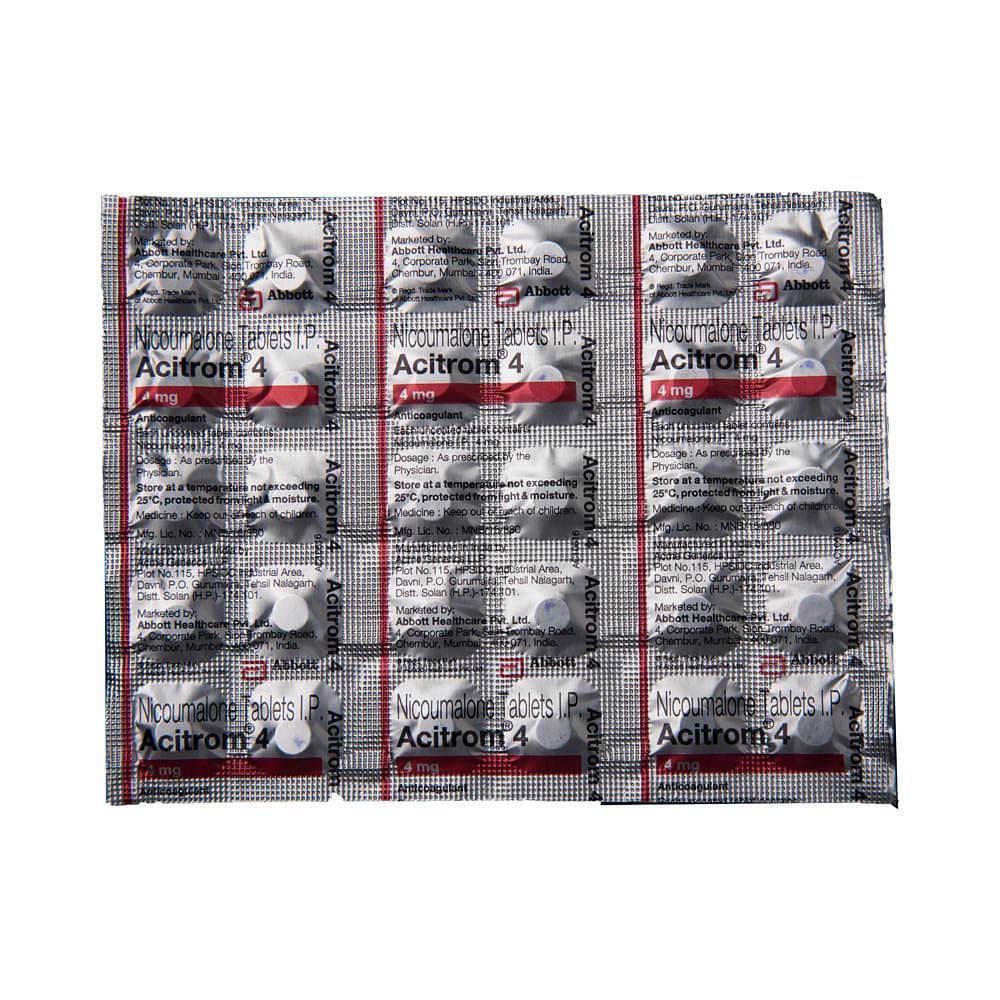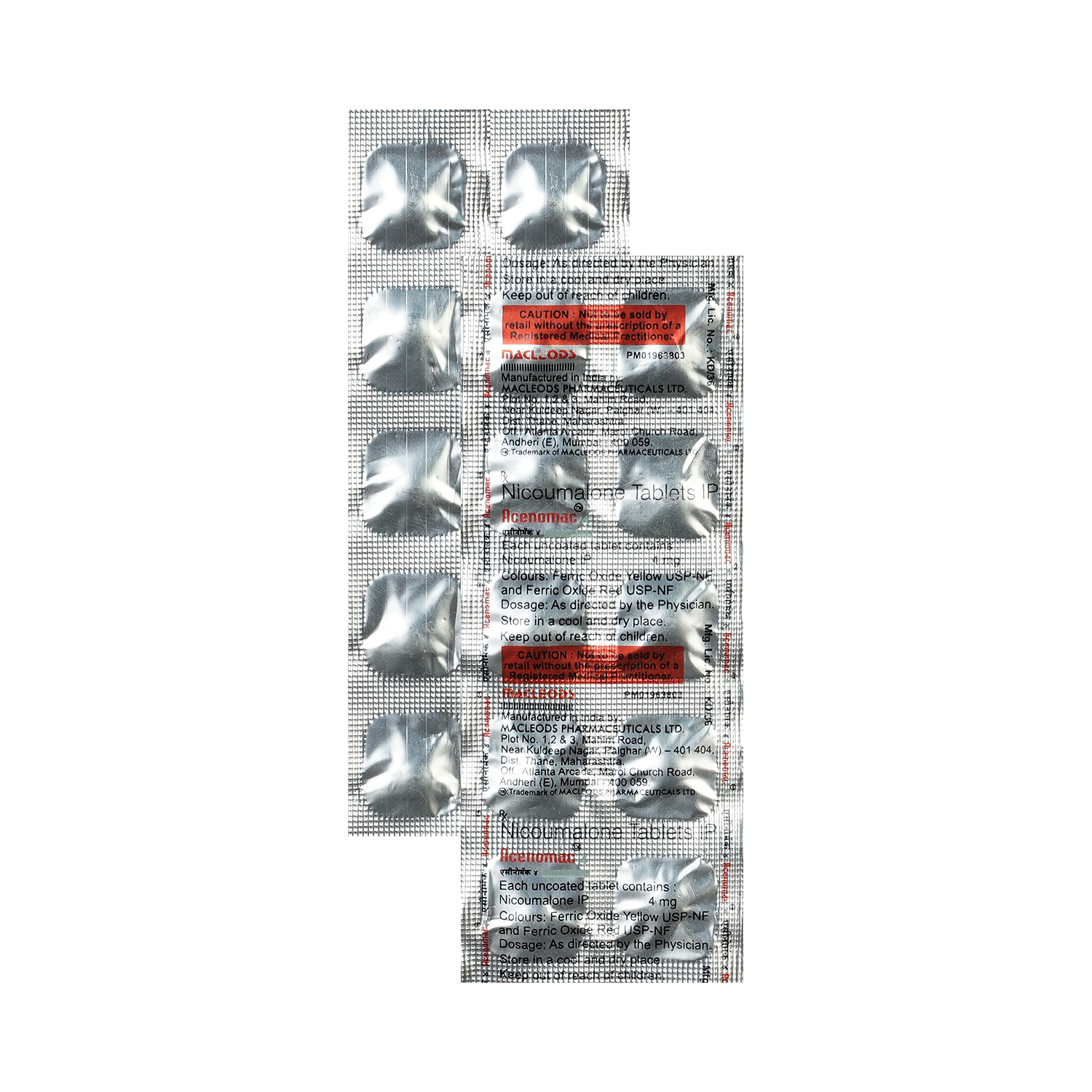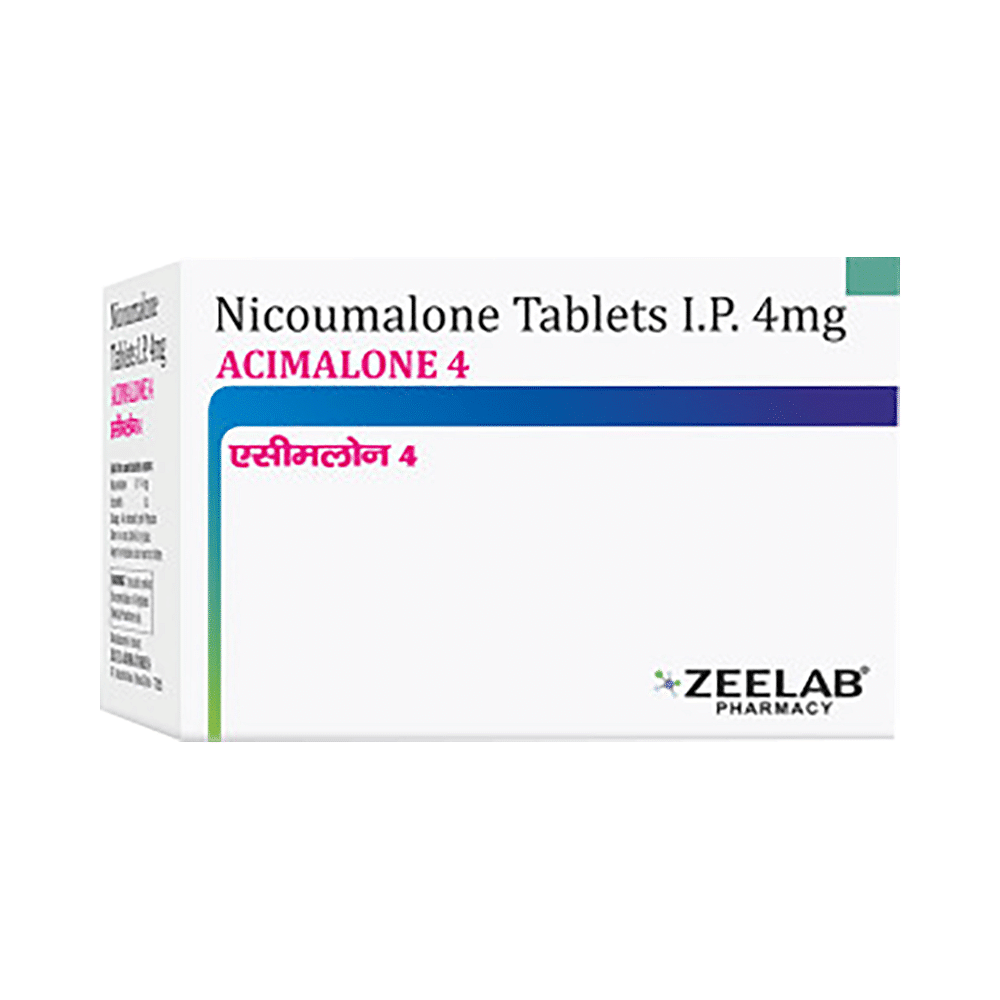
Cgtrom 4mg Tablet
Manufacturer
Cmg Biotech Pvt Ltd
Salt Composition
Acenocoumarol (4mg)
Key Information
Short Description
Cgtrom 4mg Tablet is an oral anticoagulant that helps prevent harmful blood clots in the legs, lungs, brain, and heart.
Dosage Form
Tablet
Introduction
Cgtrom 4mg Tablet should be taken as advised by the doctor. You may take it with or without food but it is better to take it at a fixed time. This medicine should not be stopped abruptly without consulting the doctor. You should take this medicine regularly to get the most benefit even if you feel fine. It is preventing future harm. Use of this medicine may increase your risk of bleeding. Let your doctor know immediately if you see a pinpoint rash or blood in your vomits, urine, or stool. If you are going under any surgery or dental treatment, you may need to stop this medicine for some time but only after consulting with your doctor. Before taking it, you must inform the doctor if you are suffering from any kidney or liver disease. Also, let your doctor know if you are pregnant or breastfeeding and about all the other medications that you are taking regularly.
Directions for Use
Take this medicine in the dose and duration as advised by your doctor. Swallow it as a whole. Do not chew, crush or break it. Cgtrom 4mg Tablet may be taken with or without food, but it is better to take it at a fixed time.
How it works
Cgtrom 4mg Tablet is an oral anticoagulant. It acts by preventing the formation of harmful blood clots. Although it does not dissolve the existing blood clots, it inhibits them from growing larger and causing serious problems.
Quick Tips
Avoid making sudden major changes to your diet during treatment with this medicine. Cgtrom 4mg Tablet increases your risk of bleeding. Be careful while shaving, cutting fingernails or toenails, using sharp objects or engaging in contact sports (e.g. football, wrestling). Notify your doctor if you see blood in your vomit, urine or stool (black, tarry stools or bright red blood). Do not consume alcohol while taking Cgtrom 4mg Tablet as this may increase its side effects. If you are going to have a surgery or dental treatment, you may be asked to stop taking Cgtrom 4mg Tablet temporarily. Do not discontinue use without consulting your doctor as this may increase your chances of having another heart attack or stroke.
Related Medicines

Acitrom 4 Tablet

Nimalin 4mg Tablet

Nicoz 4mg Tablet

Acitrom 4 Tablet

Acenomac 4mg Tablet

Nistrom 4mg Tablet

Cenorol 4mg Tablet

Nicomol 4mg Tablet

Acimalone 4 Tablet

Acetrom 4mg Tablet
Frequently asked questions
How long should I take Cgtrom 4mg Tablet?
You should continue taking Cgtrom 4mg Tablet for as long as recommended by your doctor. The duration of treatment may vary depending on the condition being treated, and your doctor will advise you on the appropriate course of treatment.
What should I avoid while taking Cgtrom 4mg Tablet?
It is essential to avoid consuming alcohol while taking Cgtrom 4mg Tablet, as it may interact with the medication. Additionally, you should avoid consuming cranberry juice or other cranberry products, as they may enhance the blood-thinning effects of the medication. Pregnant or breastfeeding women should also consult their doctor before taking Cgtrom 4mg Tablet, as it may pose a risk to the child.
Do I need to stop taking Cgtrom 4mg Tablet before undergoing surgery?
The decision to stop or continue taking Cgtrom 4mg Tablet before surgery will depend on the type of surgery and the risks and benefits associated with discontinuing the medication. Your doctor will assess your individual situation and provide guidance on the best course of action.
Is Cgtrom 4mg Tablet the same as warfarin?
While both Cgtrom 4mg Tablet and warfarin are blood thinners, they have distinct differences. Warfarin has a more stable blood-thinning effect, and your doctor will help you understand the differences and determine the best treatment option for your specific condition.
How long does it take for Cgtrom 4mg Tablet to start working?
Cgtrom 4mg Tablet may take a few days to start showing its blood-thinning effects, typically within 2-3 days. During this period, your doctor may recommend the use of heparin, which will be discontinued once the effects of Cgtrom 4mg Tablet are established.
What if I forget to take a dose of Cgtrom 4mg Tablet?
If you forget to take a dose of Cgtrom 4mg Tablet, take it as soon as you remember. However, if it is almost time for your next dose, skip the missed dose and continue with your regular schedule. Do not double the dose to make up for the missed dose. To avoid missing doses, consider keeping a medication diary or setting reminders.
What monitoring is required while taking Cgtrom 4mg Tablet?
It is essential to monitor your bleeding times carefully from the second or third dose of Cgtrom 4mg Tablet until your clotting status is stabilized. After stabilization, your doctor may recommend monthly monitoring, with more frequent monitoring in elderly patients.


